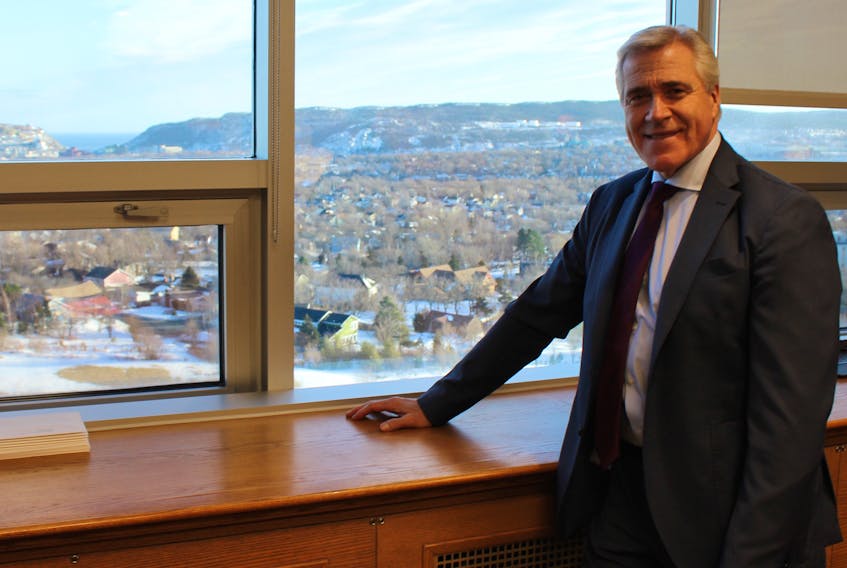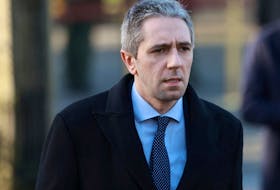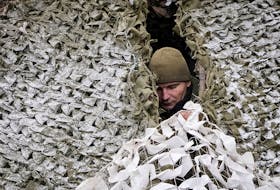If anyone knows a way to have a dull year in modern politics, please let Premier Dwight Ball know.
The past year was an unprecedented situation unfolding in the legislature, as political leaders grappled with questions of conduct on the largest stage in the province.
“For me, these things are not always perfect. The question I ask is, ‘Are they better?’ You don’t stand in the way of progress by looking for perfection.”
Premier Dwight Ball
At the same time, there are questions about a political appointment to The Rooms, questions over whether friends of the Liberals are benefitting directly from cannabis legalization through a land sale, and questions of how much the Newfoundland and Labrador public can trust their own provincial government as the Muskrat Falls Inquiry rolls along, and all front and centre.
As 2018 draws to a close and the pressure of provincial and federal elections loom in 2019, Ball says he will stand by his record whenever the ballots are cast.
“People have a tendency to go negative. No matter how positive things are going they’ll say, ‘Oh yeah, but …,’ said Ball, in a 45-minute year-end interview with The Telegram.
“For me, these things are not always perfect. The question I ask is, ‘Are they better?’ You don’t stand in the way of progress by looking for perfection.”
Part of the strategy for the Liberal Government has been efforts to diversify the economy. Agriculture projects have been progressing in the province. A memorandum of understanding signed in 2017 with Quebec to develop mining assets has shown early progress in Labrador West. Government has shown plenty of interest in developing aquaculture projects — and meeting opponents along the way.
Finance Minister Tom Osborne has previously used the analogy of planting trees that will grow in the future, if the benefits aren’t being seen right now. Ball is thinking is along the same lines.
“A lesson that I learned a long time ago is that you can’t be angry and smart at the same time.”
Premier Dwight Ball
“When you ask people for patience, but when you have something you can actually point to, it helps,” he said.
“I get it: people want things in real time. It’s where society is going right now. I get impatient myself sometimes as well, that things don’t always move as fast as we want them to move. But, you get good, incremental progress, and get it right, not always perfect, but get it right.”
But an ask for patience is an ask for trust for anybody, especially for a premier.
The Muskrat Falls Inquiry, which wrapped Phase 1 of testimony earlier this month, is the epicentre of the question of trust for the provincial government.
Ball says a lot of what he’s seen so far hasn’t been surprising — rather it’s been disappointing.
“Not to be unkind to people, but I really thought there was a lot more sophistication that was happening inside the building. That they were paying attention to likely the single biggest decision that a government made in this province in — I couldn’t tell you a bigger decision,” he said.
“Muskrat was very different (from the Upper Churchill): this was government’s investment, government’s risk.”
Ball says it’s become apparent from the earlier testimony that a lot of what drove the Muskrat Falls project forward was an anger and resentment towards Quebec over the Upper Churchill deal.
“A lesson that I learned a long time ago is that you can’t be angry and smart at the same time,” he said.
“It’s a constant reminder that attention to details matter. All of us could learn that lesson. This will have a profound impact for many, many years.”
During the Windsor Lake byelection, Ball announced on day one of the campaign that neither rate payers nor tax payers would bear the burden of Muskrat Falls.
So far, all that promise has amounted to is a referral to the Board of Commissioners of Public Utilities (PUB), with no further details announced to date on what government’s strategy will be to keep electricity rates down in the province.
Though there was a promise of further details in the weeks after the initial announcement, Ball can’t say much more about the mitigation issue right now.
“There’s not a lot of things we can actually say. There’s quite a lot of work being done right now, with the federal government involved and even other provinces — how we can work with Nova Scotia,” he said.
“We have access to some excess green power. We just have to make sure we do it right. Rate mitigation is a serious issue right now. I stand by that it’s not going to be on the backs of tax and ratepayers.”
“It’s got to start on both ends. There’s a role for the leaders and politicians … but there’s also an awareness within the public. You need to be informed. People often respond and react without having all the information available to them.”
Premier Dwight Ball
So once again comes an request for patience of the public from the premier’s office, as complicated questions are worked through.
When it comes to public trust in government, Ball says it’s not just politicians who have a role to play in the face of eroding trust locally, but also on a worldwide scale.
“It’s got to start on both ends. There’s a role for the leaders and politicians … but there’s also an awareness within the public. You need to be informed. People often respond and react without having all the information available to them,” he said.
“For me, one thing I do is just to make sure I get in the communities. If I’m anywhere, I want to be out there in the public, engaged. For me, when I get a chance to meet people face-to-face and have that discussion with them in their community, it becomes a little different. People are willing to get engaged.”
The House of Assembly recently struck an all-party committee on democratic reform that — through months of delays before the committee even was passed by the house — is expected to get to work in the new year.
Ball doesn’t want to get ahead of the committee’s work, but he did wonder how the committee’s finding with change democracy in the province.
“The mainstream party politics, will that change in the future? I wouldn’t be surprised if it does. I think you’ll see more consensus-building,” he said.
“It really comes down to representation and the people you put in place, how engaged they are with the electorate. I think we will see it evolve, but will it get back to what it was 40-50 years ago, probably not.”
Before the provincial election will come the 2019-20 provincial budget. Countless reports — most recently by auditor general Julia Mullaley — have called on government to find a way to cut spending. Currently, this province has the highest net debt on a per capita basis across the country by a wide margin.
Ball seems wary to rock the boat with large-scale spending cuts in the 2019 provincial budget.
“The kind of spending cuts that people are talking about would have major impacts on health, education, and infrastructure. So, it’s finding the balance on how you do this, when you put services in place,” he said.
Despite the questions hanging in the air about electricity rates, high government spending, and public trust in the provincial government has a whole, Ball says he remains optimistic, and hopes voters will be, too.
“There’s no question that this province is in better shape. We’ve made progress — not always perfect — but progress,” he said.
“I’ll ask people to take a look at what we’ve done. There’s still more work to do. I’ll put my record out there. When I look at Ches Crosbie, the view is they want people to vote against something. I’m more optimistic – I want people to vote for something.”
Twitter: DavidMaherNL









